
Linking Gut and Brain
A Wisconsin Partnership Program (WPP) postdoctoral grant program, launched in 2024, is designed to provide crucial funding to support the work and career development of postdoctoral trainees, postdoctoral fellows, clinical fellows and research associates at the UW School of Medicine and Public Health.
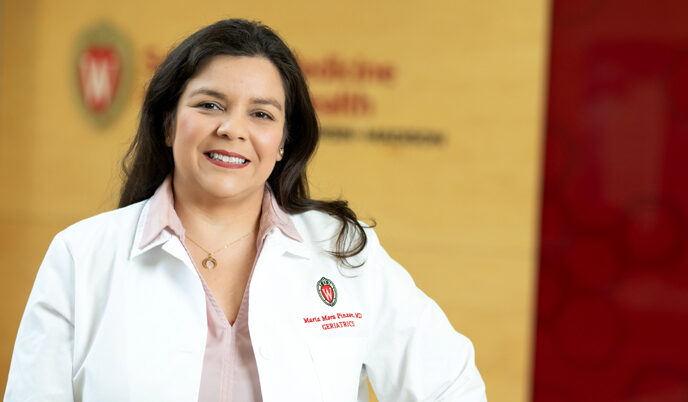
Preventive Medicine Residency Shapes Wisconsin’s Health Care Leaders
The Wisconsin Partnership Program has provided vital support to establish public health training pathways like the Preventive Medicine Residency Program at the University of Wisconsin School of Medicine and Public Health.

Improving Lupus Care Through Community Collaboration
Mary Wells is, as her T-shirt proclaims, a “Well Black Woman.” She’s also a 25-year “lupus warrior,’’ and the founder and head of a multi-state support group for women of color who are living with systemic lupus erythematosus (SLE).
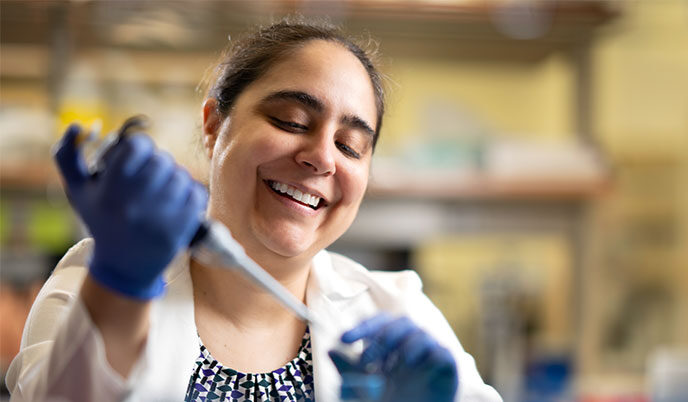
Finding Better Treatment Markers for Breast Cancer Patients
Marina Sharifi, MD, PhD, a breast cancer medical oncologist and assistant professor in the Department of Medicine, is developing a blood test that can better match the best cancer treatment to an individual patient.
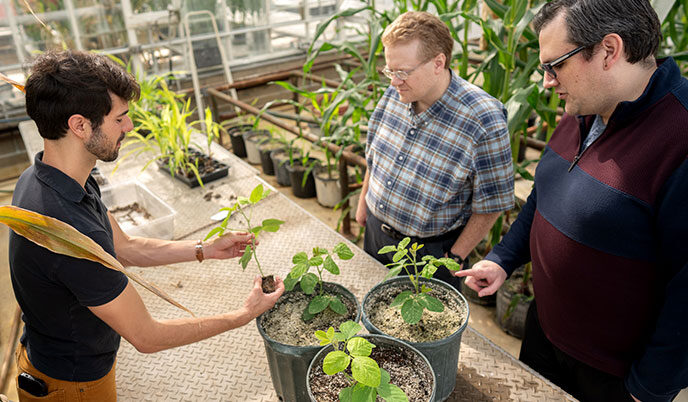
Engineering a Healthier Calorie
In a UW–Madison greenhouse, “Super Corn” and “Super Soy” plants reach to the sun, giving hope for a future when baked goods and corn chips may help fix our obesity and diabetes epidemics.
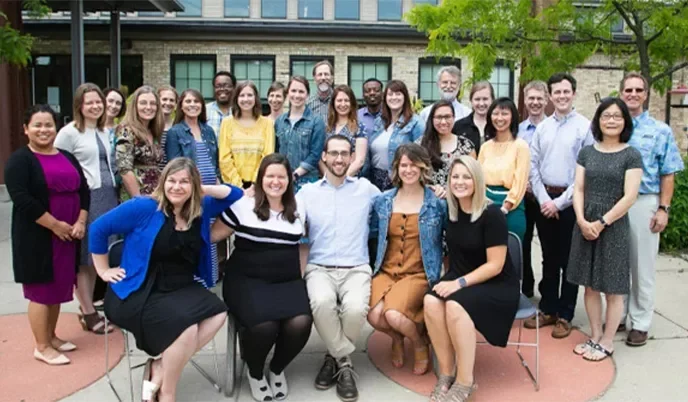
Preparing Future Public Health Leaders
The Population Health Service Fellowship Program is a cornerstone of the Partnership’s educational investments and continues to successfully achieve its goals of both public health workforce development and service contributions to rural and urban communities.

Reducing Health Disparities Across Wisconsin Health Systems
The Wisconsin Collaborative for Healthcare Quality's Health Disparities Report identifies where gaps in health outcomes and care exist in Wisconsin. The data was submitted to WCHQ by 25 health systems and medical clinics and it represents the most complete and recent (2018) data available for this work.

Exploring the Role of Gut Bacteria in Development of Alzheimer’s
Previous studies conducted at UW–Madison show that people with dementia due to Alzheimer’s disease have differences in their gut microbiome—the community of microbes, including bacteria, which reside in the gut — compared to people without dementia. A team of multidisciplinary researchers at UW is exploring the role of gut bacteria in the development and treatment of Alzheimer’s disease.

Increasing Vision Screening To Reduce Blindness
In an effort to mitigate vision loss among diabetic populations, Yao Liu, a recipient of a 2015 New Investigator Program award from the Wisconsin Partnership Program, has embarked on a research project aimed at increasing access to vision screening and improving eye screening rates in underserved, rural Wisconsin communities.
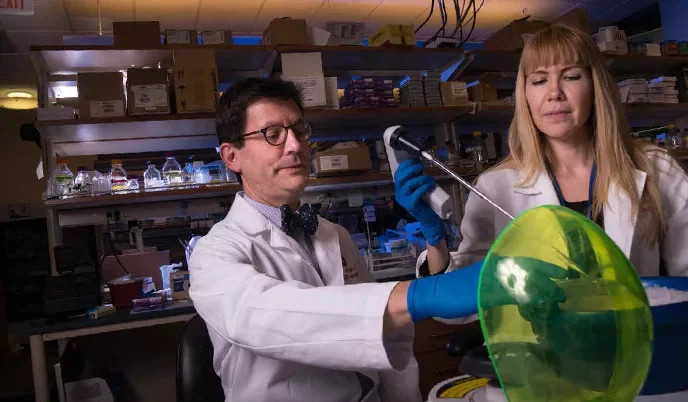
Exploring New Treatments for Breast Cancer
Metabolic Priming Triple-Negative Breast Cancer to Proapoptotic Therapy is exploring metabolic priming, a novel model for cancer therapy that uses dietary manipulations to make cancer cells more vulnerable to a targeted new drug that kills tumor cells, but not normal cells. The study is the first of its kind to use diet to prime triple-negative breast cancer cells to respond to a targeted cancer drug.